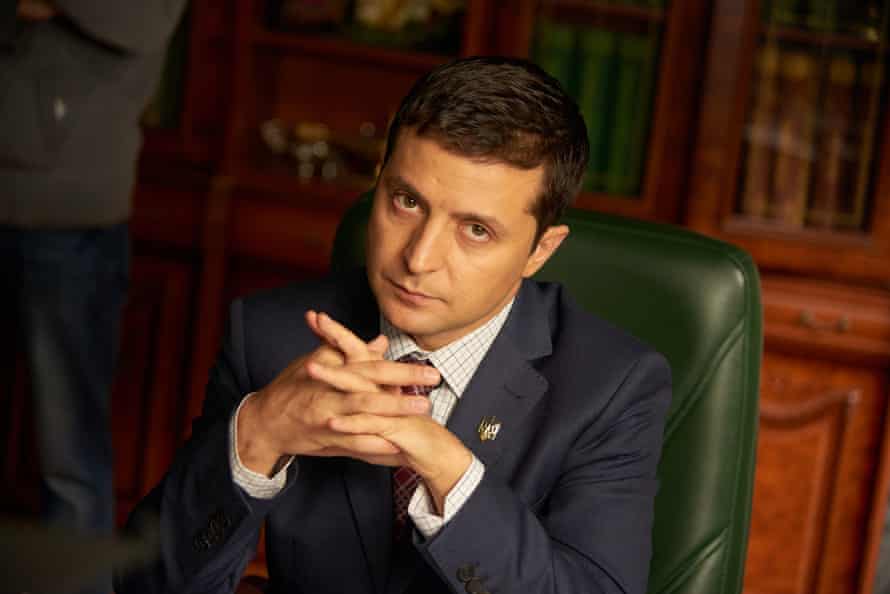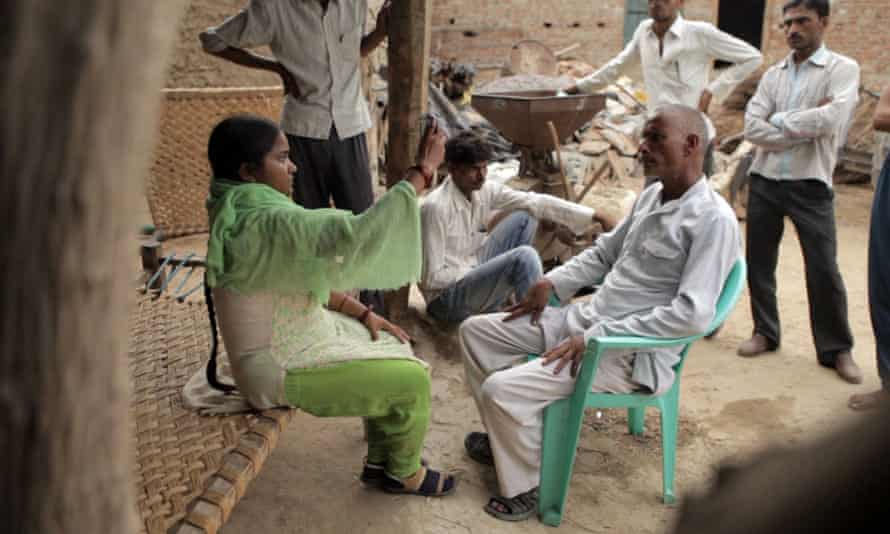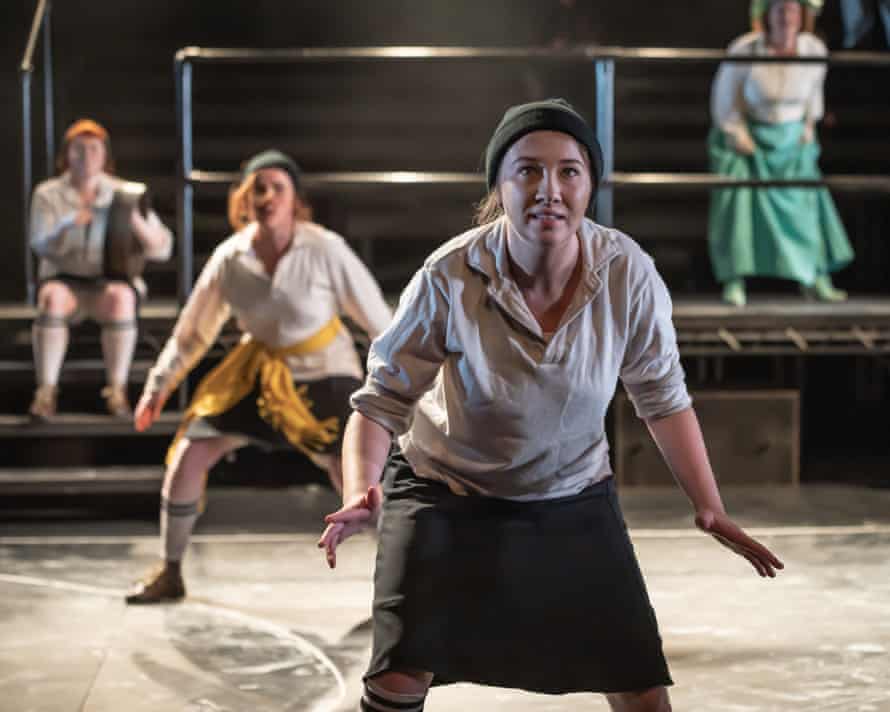The Ipcress File (ITV) | ITV Hub
The Witchfinder (BBC Two / iPlayer
Servant of the People (Channel four) | All four
Storyville: Writing With Fire (BBC Four) | iPlayer
With remakes, the query needs to be: has something inspiring been achieved or are we simply being served reheated dinner with a sprig of limp parsley on prime?
I stored this in thoughts whereas watching ITV’s The Ipcress File, the six-half chilly warfare spy thriller tailored from Len Deighton’s 1962 novel, directed by James Watkins, scripted by John Hodge (Trainspotting). It stars Joe Cole (Peaky Blinders) as Harry Palmer, the working-class, culturally literate, culinary minded intelligence agent, a job first inhabited, with textured brilliance, by Michael Caine in the 1965 movie. Now, with the Russian invasion of Ukraine, this new TV tackle a narrative about nuclear menace arrives imbued with disturbing resonance. I don’t find out about you, however, personally, strains equivalent to: “It seems more and more likely every day that we’re all very shortly going to be blown to smithereens” aren’t touchdown as interval-piece fancy.
The problem dealing with The Ipcress File is to nod to the movie with out turning into so drenched in homage it begins reeking of low cost aftershave. Palmer retains the signature nerd-core spectacles and mac, and, as in the movie, digital camera angles tilt, peep and crouch with arty abandon. The primary plot – a nuclear scientist is kidnapped – is retained, with tweaks. Palmer’s navy grifter backstory is given airtime, whereas different characters achieve prominence: fellow agent Jean Courtney (Lucy Boynton) turns into a proto-feminist It lady with a splash of Lady Penelope. A black CIA operative (Ashley Thomas) doesn’t shy from referring to the rarity of his appointment. As arch-spook Dalby, Tom Hollander delivers the finest sort of uber-institution human bowler hat, giving a clipped masterclass in obtained pronunciation and wry smackdowns.
There are sobering meta-moments. Vasiliy snaps at A Vladimir Putin doppelganger: ‘Get lost, move it!’
Still, all of it hangs on the main man. First thought on Cole: he’s simply too younger trying, too choirboy-fairly; you retain anticipating him to sweetly burst into the Hallelujah Chorus. However, a pair of episodes in, I’m discovering that he’s sneaking into the function, like a cat by way of a aspect window. It’s all in the cocky backchat, the crackles of masked intelligence, the cautious glints; the acknowledgment that no matter else is occurring in chilly warfare Britain, for Palmer, browsing the class system is an element of it.
I watched all six episodes of new BBC Two comedy The Witchfinder, as if I may by some means magic up an enchancment, to no avail. Written and directed by Neil and Rob Gibbons, who did the cracking This Time With Alan Partridge (Steve Coogan acts as script marketing consultant on The Witchfinder), and starring Tim Key (Partridge’s sidekick) and Daisy May Cooper (This Country), it’s set in East Anglia in 1645, throughout the murderous persecution of ladies as witches. Which, clearly, is not any laughing matter, and but, in black comedy phrases, there isn’t a purpose why it shouldn’t be.
There aren’t practically sufficient jokes in The Witchfinder, and Key and Cooper wrestle to search out comedian chemistry. Key’s Gideon, a small-time witchfinder, making an attempt to scale the profession ladder, is (intentionally) low wattage, whereas Cooper’s Thomasine – a neighborhood lady accused of sorcery, taken to be tried in Chelmsford – is a raging bonfire. Both are gifted performers, however each scene they do collectively leaves Key diminished to cinders.
Vincent Franklin and Daisy May Cooper in the ‘weirdly half-hearted’ The Witchfinder. Photograph: Steve Peskett/BBC/Baby Cow Productions
Elsewhere, it’s teeming with expertise (Daniel Rigby, Jessica Hynes, Julian Barratt, to call a number of), however the complete factor is scuppered by the dated timidity of the strategy. The Witchfinder may have been The Crucible restyled with a British eye-roll – a pithy, backdated skewering of 17th-century misogyny. Instead, it’s a primary odd couple yarn performed out in opposition to a backdrop of weirdly half-hearted femicide.
As the nightmare in Ukraine continues, an unmissable tv curio emerges. Most will know of Ukrainian president Volodymyr Zelenskiy’s showbiz previous: the comedy troupe; dubbing the voice of Paddington Bear; successful Ukraine’s Dancing With the Stars. Now Channel four is airing the opening episodes of Servant of the People, the 2015 comedy that paved the manner for Zelenskiy’s election, taking the sequence identify for his political social gathering.
Zelenskiy performs Vasiliy, a put-upon instructor whose diatribe in opposition to political corruption – “These bastards come to power and steal and steal” – is filmed by a pupil and goes viral, resulting in him turning into president. From there, it’s all pointed satire as he and his household alter to riches and energy. In the principal, Servant… is intelligent and witty, with surreal flashes (Abraham Lincoln seems in a imaginative and prescient), however there are additionally sobering meta-moments. When Vasiliy practises assembly world leaders with lookalikes, he snaps at the Vladimir Putin doppelganger: “Get lost, move it!”
 Volodymyr Zelenskiy in the ‘clever and witty’ 2015 Ukrainian comedy Servant of the People. Photograph: Channel four
Volodymyr Zelenskiy in the ‘clever and witty’ 2015 Ukrainian comedy Servant of the People. Photograph: Channel four
On the night time it aired, Channel four additionally confirmed Zelenskiy: The Man Who Took on Putin, a brief, punchy documentary exploring Zelenskiy’s origins and mindset. Arguably, this additionally comes by way of in Servant of the People’s comedian fiction, equivalent to when Vasiliy tells the nation sombrely: “What you do must never make you feel ashamed as you look in your kids’ eyes.” With Zelenskiy and his fellow Ukrainians nonetheless imperilled, Servant of the People is uneasy viewing. At the identical time it feels essential: a priceless trace at the unchanging core of the Ukrainian president.
BBC Four’s Storyville: Writing With Fire, the directorial debut of couple Rintu Thomas and Sushmit Ghosh, is a characteristic-size documentary that received the viewers award for world cinema documentary at the 2021 Sundance movie competition and has been nominated for an Oscar. It focuses on Khabar Lahariya (that means: waves of information), the solely Indian newspaper run by Dalit ladies, who’re thought-about so untouchable they’re not even half of the caste system.
 Meera Devi, a Khabar Lahariya journalist, interviews a person in Storyville’s ‘stunning’ Writing With Fire. Photograph: Screen seize/BBC/Black Ticket Films
Meera Devi, a Khabar Lahariya journalist, interviews a person in Storyville’s ‘stunning’ Writing With Fire. Photograph: Screen seize/BBC/Black Ticket Films
The movie follows the reporters – together with Meera Devi, Suneeta Prajapati and Shyamkali Devi – as Khabar Lahariya develops a digital platform that rises to 150m views. The trio cowl rape, unlawful mine collapses, political corruption, and rather more, and are sometimes the solely reporters folks belief. This is a shocking multilayered documentary, giving a real sense of the ladies, the risks of their work, and the sights and sounds of India.
What else I’m watching
Rough Girls
BBC Four
Derry Girls actor Tara Lynne O’Neill’s debut play, about Northern Ireland’s first ladies’s soccer staff, was filmed for TV at the Lyric theatre, Belfast; it’s a particular, fiery affair, full of coronary heart, comedy and wild moments.
 Rough Girls. Photograph: Chris Heany/BBC NI
Rough Girls. Photograph: Chris Heany/BBC NI
The Andy Warhol Diaries
Netflix
Andrew Rossi’s in-depth documentary sequence on the artist and his diaries options interviews with buddies and interviews with buddies and movie star associates. It’s voiced (through synthetic intelligence) by Rossi to seem as if Warhol is “narrating”.
RuPaul’s Drag Race: The UK Vs the World
BBC Three
The ultimate (no spoilers) of a stormy sequence, rife with backbiting amongst queens and on-line turbulence after each elimination. A horrible disgrace, as drag queens and their followers hate drama of any sort. Hate it.









